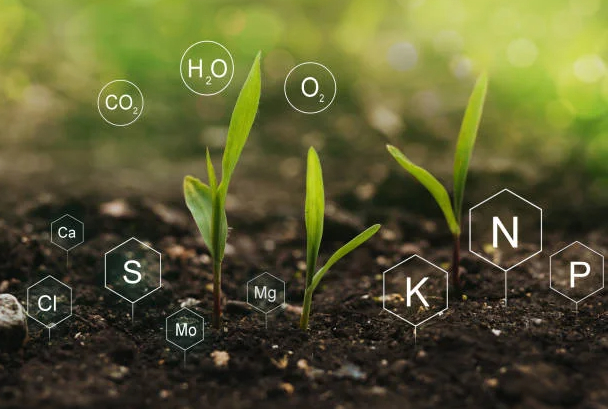June 19, 2025 | 19:33 GMT +7
June 19, 2025 | 19:33 GMT +7
Hotline: 0913.378.918
June 19, 2025 | 19:33 GMT +7
Hotline: 0913.378.918

Nitrogen fertilizer is one of the most common nordfert fertilizers.
More than a century ago two German chemists, Fritz Haber and Carl Bosch, perfected a technique for taking nitrogen from air and combining it with hydrogen to make ammonia, now widely used to make nitrogen fertilizers. What came to be known as the Haber-Bosch process unleashed a revolution in crop yields which were no longer limited by natural inputs of nitrogen.
So important is this process to crop yields that it is estimated that without it half the people alive today would starve. If the worldwide application of nitrogen fertilizers had no adverse consequences, there would be no problem continuing business-as-usual. But the consequences have become worrisome:
Increasing algal blooms fed by nitrogen runoff in waters around the world are killing aquatic life and endangering humans who wade or swim into such waters. This is the cause of so-called “red tides” and also of the famous “dead zones” at the end of some of the world’s largest rivers.
Nitrogen fertilizers stimulate microbes in the soil thereby increasing their conversion of nitrogen to nitrous oxide, a potent greenhouse gas. Those fertilizers are responsible for a dramatic rise in nitrous oxide in the atmosphere. This gas is 300 times more potent than carbon dioxide as a greenhouse gas. Nitrous oxide is the third most important greenhouse gas behind carbon dioxide and methane.
The imbalances and blooms caused by nitrogen fertilizers are threatening many species and thus the planet’s biodiversity.
But, there is no movement comparable to the climate change movement to champion solutions. One reason is that few people know and understand the significance of the imbalances being fostered by our widespread use of nitrogen fertilizers. A second reason is that the consequences of weening ourselves off such fertilizers would be nothing short of catastrophic. There is simply no readily deployable substitute for nitrogen to grow crops in quantities sufficient to feed the current world population.
We have therefore unwittingly created a monkey trap for global human society. A monkey trap consists of a coconut with hole just large enough for a monkey to get his hand in. The coconut is fastened securely to a stake. Food is put into the coconut. When a monkey tries to withdraw his hand now full of food from the coconut, he finds that the opening is too small. So, the monkey is stuck. His instinct tells him to hang on to the food and keep trying. But doing so endangers him every second he stays put.
The widespread availability of nitrogen fertilizers is like the monkey trap. We need those fertilizers desperately to feed the growing human (and animal) population. Evidence tells us that with every day we continue, the dangers from their use grow. But we cannot stop ourselves.
This is just part of a more general conundrum for the human community which knows that abandoning the highly productive industrial way of life we have built would entail immense suffering for some and maybe most people alive on the planet today. However, waiting for the collapse that is inevitable along our current unsustainable trajectory will entail even greater suffering.
Right now we are simply whistling past the graveyard hoping that something will come along and prevent the worst. So far, nothing has; nor is there anything on the horizon. Regarding agriculture, there are small experiments in regenerative farming around the world. But, there is no widespread move to bring human society back into balance with the soil it depends on for its existence.
Doing that would require a reorientation of our thinking away from regarding the soil as just another industrial platform for obtaining our needs, but rather a system of which we are an integral part and with which we must harmonize.
(Resilience)

(VAN) Poultry production in Poland, which has only started recovering from devastating bird flu outbreaks earlier this year, has been hit by a series of outbreaks of Newcastle disease, with the veterinary situation deteriorating rapidly.

(VAN) Extensive licensing requirements raise concerns about intellectual property theft.

(VAN) As of Friday, a salmonella outbreak linked to a California egg producer had sickened at least 79 people. Of the infected people, 21 hospitalizations were reported, U.S. health officials said.

(VAN) With the war ongoing, many Ukrainian farmers and rural farming families face limited access to their land due to mines and lack the financial resources to purchase needed agricultural inputs.

(VAN) Vikas Rambal has quietly built a $5 billion business empire in manufacturing, property and solar, and catapulted onto the Rich List.

(VAN) Available cropland now at less than five percent, according to latest geospatial assessment from FAO and UNOSAT.

(VAN) Alt Carbon has raised $12 million in a seed round as it plans to scale its carbon dioxide removal work in the South Asian nation.